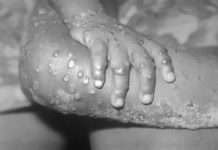
There are presently serious concerns about an outbreak of cholera, which is already ravaging many states, with about 30 deaths and 1,141 suspected cases. So far, the disease has been reported in Bayelsa, Zamfara, Abia, Cross River, Bauchi, Delta, Katsina, Imo, Nasarawa, and Lagos.
A very contagious disease, caused by the bacteria Vibrio cholerae, cholera thrives in very dirty and unhygienic environments, characterised by poor sanitation, and therefore poses life-threatening dangers to human health. This is especially common in highly populated areas, such as the major cities of Lagos, Port Harcourt, Abuja, Kano and Kaduna.
Because of their population densities, these cities should as a matter of urgency look into the hygiene situations within their local communities, especially at a time when eating and drinking can become uncontrolled. Symptoms of cholera include severe diarrhoea, vomiting and rapid dehydration, which can lead to death if not immediately treated.
The campaign for good personal hygiene should begin with families. Parents should equip themselves and their wards with health tips that can help prevent or curtail the spread of this fatal disease. Reckless eating and drinking should be discouraged, no matter how attracting the meal or drink appears to be. Toilet systems should be given the most strategic attention, bearing in mind the propensity of the bacteria to thrive in such environments.
The Global Task Force on Cholera Control has said that the disease afflicts more of poor people in underdeveloped countries. This assertion is obviously true, owing to the poor living and sanitation standards of communities in such countries, where the best toilet systems are not available, due to poverty and sometimes illiteracy. In Nigeria, there have been sporadic outbreaks of the disease due to poverty and poor hygiene. Aside from overpopulated cities like Lagos and Kano, most of northern Nigeria has been at the receiving end of these outbreaks due to the high rate of poverty, illiteracy and poor sanitation in such areas.
While Lagos remains an important flashpoint in the discussion of cholera outbreak, due to its population, kudos must be given to the state government for its proactiveness in ensuring that citizens are sensitised about the disease through the mass media. As of the time of writing this piece, the state government has
(NBMA) has said it is working in collaboration with other health authorities to actively monitor and combat the spread of the disease in Nigeria. The Director-General of NBMA, Agnes Asagbra, stressed the need for caution and highest hygiene practices to prevent the spread of cholera.
To this end, individuals and communities should ensure that all drinking water is boiled and sanitised in adherence to certified methods. Hand hygiene, using water, soap and other effective forms of hand sanitisation methods are highly encouraged, especially before and after eating. More so, foods such as vegetables, fruits and animal entrails need to be washed and cooked thoroughly before consumption.
For a disease that has since been eradicated in Europe and North America 100 years ago, it is a huge slap on the face of most African countries that it is still rearing its ugly head in their territories. According to the World Health Organisation, there were cholera outbreaks in 23 countries in Africa and the Eastern Mediterranean in 2021, with the figure jumping to 29 in 2022.
As the so-called giant of Africa Nigeria can actually work towards totally eradicating this disease from its region. With its humungous oil wealth, the country has no excuse not to be able to meet this target, especially as it was able to eradicate wild polio in 2020. Though it was the last country to do so in Africa, it can still do its citizens much good if the same history can be made with cholera.
For this to be achieved however, there must be drastic changes in the way and manner our health institutions are run.The appointment of Health Ministers should be on merit and not on the need to placate or reward politicians. When our best brains are allowed to run our health ministries, the passion to make positive impact would definitely supersede the ambition to steal or embezzle public funds. It is also important to note that, irrespective of political differences, all state Commissioners of Health should be united for the singular cause of ensuring that Nigeria triumphs over any health emergency that may erupt at any given time.











